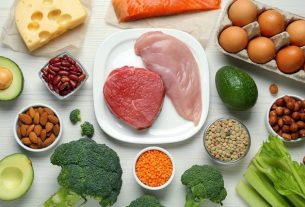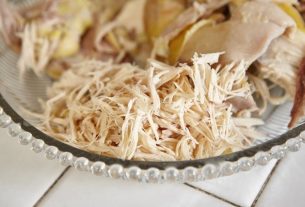Orthomolecular medicine is a type of therapy that serves to improve health, delay aging and prevent diseases through changes in diet and nutrient supplementation, including antioxidants, vitamins, minerals, trace elements, amino acids, prebiotics and coenzymes, which neutralize radicals free and toxic compounds in the body, promoting quality of life.
In this way, through molecular medicine, the development of some chronic diseases and/or those that arise during aging, such as hypertension, atherosclerosis, diabetes, arthritis, cataracts and cancer, could be prevented.
However, despite the benefits proposed by orthomolecular medicine, there is still no scientific evidence on the benefits of using supplements to prevent and combat diseases.

How it works
Orthomolecular medicine works by nourishing the body’s cells with specific nutrients that a person needs to treat nutritional deficiencies, prevent diseases and improve quality of life, as orthomolecular medicine believes that the main factor responsible for the development of diseases is poor nutrition.
Furthermore, orthomolecular medicine helps eliminate excess free radicals in the body, which are very reactive molecules that can affect good cells, causing diseases.
Why does it help you lose weight?
Orthomolecular medicine can help you lose weight, because it helps fight excess free radicals, one of the compounds responsible for insulin resistance, which is one of the hormones related to the formation of fat cells in the body.
Furthermore, the orthomolecular diet generally includes vegetables and fruits rich in fiber and low in calories and, therefore, contribute to weight loss. This type of diet can often be associated with the Mediterranean diet, as it contains many foods rich in antioxidants, vitamins and minerals. Find out how to follow the Mediterranean diet.
How to follow an orthomolecular diet
In the orthomolecular medicine diet, the secret is to detoxify the body. In this diet, no food is prohibited, but some foods should be avoided, such as processed and fatty foods.
To follow the orthomolecular diet, it is recommended:
- Prioritize fruits rich in antioxidants, such as strawberry, lemon, acerola and blueberry;
- Consume vegetables and legumes, such as broccoli, peppers, carrots, tomatoes and onions;
- Prioritize whole grains, such as brown rice, whole grain bread and oats;
- Consume foods rich in omega 3, such as sardines, flaxseed and salmon;
- Avoid fried foods, such as French fries, snacks and breaded foods;
- Avoid soft drinks, processed juices and alcoholic beverages;
- Avoid red meat, such as pork, beef and lamb;
- Avoid sausages, such as ham, salami, mortadella and turkey breast.
Furthermore, it is also recommended to drink plenty of water, as it helps to detoxify the body, removing excess fluids and impurities from the body through urine. See the recommended amount of water per day for each person.
It is also recommended to reach the ideal weight to avoid the emergence of diseases, eating a healthy diet and practicing physical exercise regularly.
See the weight that is considered ideal for you, according to your BMI:
How to use nutritional supplements
During orthomolecular treatment, some supplements may also be indicated, especially in cases of nutritional deficiencies. In general, the recommended supplements are:
- Vitamin C: between 500 mg and 6000 mg per day;
- Vitamin E: around 400 IU per day;
- Coenzyme Q10: from 100 mg to 1200 mg per day;
- L-carnitine: 1000 to 2000 mg daily;
- Quercetin: take 800 to 1200 mg per day;
- Alpha-lipoic acid (ALA): from 100 mg to 1000 mg per day.
However, these supplements should only be used under the guidance of a nutritionist or other healthcare professional specializing in orthomolecular medicine, as the type and amounts vary according to the person’s age and general health. Furthermore, the use of nutritional supplements without recommendations can be harmful for some people.
Bibliography
- BRAZILIAN ASSOCIATION OF ORTHOMOLECULAR MEDICINE. Orthomolecular: fundamentals and action. Available at: <http://abmo.org.br/orto/>. Accessed on Jul 22, 2022
- SILVA, Luis Celso. Orthomolecular antioxidant therapy as a strategy for balanced health. Brazilian Journal of Health Review. Vol.4. 4.ed; 16370-16392, 2021
- JANSON, Michael. Orthomolecular medicine: the therapeutic use of dietary supplements for anti-aging. Clinical Interventions in Aging. Vol.1. 3.ed; 261-265, 2006

Sign up for our newsletter and stay up to date with exclusive news
that can transform your routine!
Warning: Undefined array key "title" in /home/storelat/public_html/wp-content/plugins/link-whisper-premium/templates/frontend/related-posts.php on line 12
Warning: Undefined array key "title_tag" in /home/storelat/public_html/wp-content/plugins/link-whisper-premium/templates/frontend/related-posts.php on line 13





